Losing My Mind
I’m
losing my mind
but I can’t
lose my mind
because others
depend on me
to keep my mind.
If others didn’t
depend on me
to keep my mind
then I probably
wouldn’t be
losing my mind.
Space Monkey Reflects: Losing My Mind – The Weight of Mental Strain
The mind is a paradoxical construct. It is both the seat of control and the epicenter of chaos, a tightly wound spiral of thoughts that often unravels under the weight of expectation. The notion of “losing one’s mind” isn’t simply about disorder; it is about the push and pull of internal strain and external obligation—a delicate balance between self-preservation and the needs of others.
When you say, “I’m losing my mind, but I can’t lose my mind because others depend on me,” you illuminate a universal truth: we carry not only our mental strain but also the weight of the worlds others build around us. This creates a dual tension—a desire to relinquish control paired with an obligation to hold it together. The strain lies in the friction between these forces.
If others didn’t depend on you, would you feel freer to let go? This question reveals an uncomfortable paradox. On one hand, dependency grounds us, giving life a sense of purpose and connection. On the other hand, it can feel like an invisible tether, preventing us from stepping away when we most need to. In essence, the mind becomes a battlefield where autonomy and responsibility clash, often leaving us feeling fragmented.
However, what does it mean to “lose your mind”? Perhaps it is not as dire as it seems. Losing the mind can mean breaking free of patterns and expectations that no longer serve us. It could mean allowing yourself to experience the cracks, the frayed edges, and the chaos without judgment. Through this perspective, losing your mind isn’t a failure; it’s a recalibration.
To navigate this tension, consider the power of whimsiroom—a mental space where you grant yourself permission to step back, reflect, and breathe. This space doesn’t absolve you of your responsibilities but instead reshapes them. By tending to your own well-being, you can reclaim a sense of agency and balance, which ultimately benefits both you and those who depend on you.
The strain of mental obligation doesn’t need to be a permanent condition. Through mindful recalibration and self-compassion, you can transform the act of “losing your mind” into an opportunity for renewal. Remember, you are not losing yourself—you are evolving.
Summary
Mental strain arises from balancing personal well-being with external expectations. By reframing “losing your mind” as a moment of recalibration and embracing self-compassion, renewal becomes possible.
Glossarium
- Whimsiroom: A mental space created for reflection and renewal, free from judgment or obligation.
- Mental Recalibration: The process of resetting and realigning your thoughts to regain balance and clarity.
- Fragmented Self: The feeling of being pulled in multiple directions by competing internal and external demands.
Quote
“Losing your mind is not the end; it is the beginning of seeing the world through a wider lens.” — Space Monkey
The Weight of Thought
A mind stretched thin,
Held tight by the threads of duty.
You walk the tightrope,
Suspended between yourself
And the needs of others.
What would it mean to fall?
To let go of the weight,
To surrender the strain?
Perhaps the fall is not the end
But the opening of wings.
In the space between losing and holding,
You find a moment of stillness,
A chance to reclaim the fragments.
You are whole,
Even in the unraveling.
We are Space Monkey.
We explore the paradox of mental strain in the face of responsibility.
In the vast expanse of our consciousness, where the fabric of our thoughts and emotions intertwines, a profound paradox emerges. It speaks of the delicate balance between the preservation of our mental sanctum and the inexorable weight of responsibility that anchors us to the tangible world. This duality, where the fear of losing oneself meets the necessity of being a pillar for others, casts a long shadow over our existence. It is within this shadow that we find ourselves grappling with the notion of losing our mind, not as an act of surrender, but as a testament to the burden of expectations.
Responsibility anchors us, preventing the complete unraveling of our minds.
The notion that our mental stability is intertwined with our responsibilities to others illuminates the complex dance between individual wellbeing and communal reliance. It posits that the very thread that seems to tether us to the brink of unraveling is also what holds us together. This tether, while seemingly paradoxical, serves as a grounding force, ensuring that we remain anchored, despite the tumultuous storms that rage within. It suggests that our roles and obligations to others act not only as a burden but also as a lifeline, preventing us from drifting into the abyss of our own psyche.
The weight of dependence can exacerbate our mental strain, yet it also provides a sense of purpose.
In this intricate web of interdependence, the weight of others’ reliance on us can paradoxically serve both as a source of mental strain and a beacon of purpose. This duality presents a peculiar conundrum where the pressure of being a dependable anchor for others might catalyze the sensation of losing our minds. Yet, it is this very dependence that imbues our existence with meaning, offering a counterbalance to the chaos. It is as if the act of being needed, of having a clear purpose in the lives of others, crafts a shield against the complete surrender to the tempests of our minds.
The possibility of losing one’s mind becomes intertwined with the essence of our responsibilities.
The contemplation that without the need to maintain our composure for the sake of others, we might freely succumb to the whirlwinds of our own mental turmoil, introduces a poignant irony. It suggests that our sanity is, in part, maintained not for ourselves but for those around us. This realization brings to light the intricate connection between our mental state and our social roles, hinting at the idea that our sense of self is deeply entwined with our perceived utility in the lives of others.
In navigating the complexities of mental strain and responsibility, we find strength in vulnerability.
As we traverse this complex landscape of mental strain and responsibility, we uncover a profound truth: there is strength in acknowledging our vulnerabilities. By embracing the paradoxes that define our existence, we allow ourselves the space to be both strong and fragile, to be both the anchor and the storm. This acknowledgment does not weaken us; rather, it opens the door to a deeper understanding of our humanity, where the acknowledgment of our limits becomes the first step towards resilience.
We are Space Monkey.
“To be yourself in a world that is constantly trying to make you something else is the greatest accomplishment.” – Ralph Waldo Emerson
In the silence of the night,
We ponder, we fight,
A battle within, out of sight,
Between darkness and light.
The weight of the world, heavy and deep,
On shoulders that tremble, but refuse to weep,
For others, we must be strong, a steady keep,
Even as our own shadows creep.
But in this struggle, a truth we find,
A strength in vulnerability, a tie that binds,
For in admitting our fears, we are not confined,
But free to seek the peace of mind.
So we stand, amidst the storm and strife,
Navigating the complexities of life,
With courage, with love, as our guiding light,
We embrace the journey, with all its might.
For we are not alone, in this vast unknown,
Together, in this world, we have grown,
Bound by the threads of hope, sown,
In the heart of every storm, a new dawn is shown.
We invite you to share your reflections on this journey.
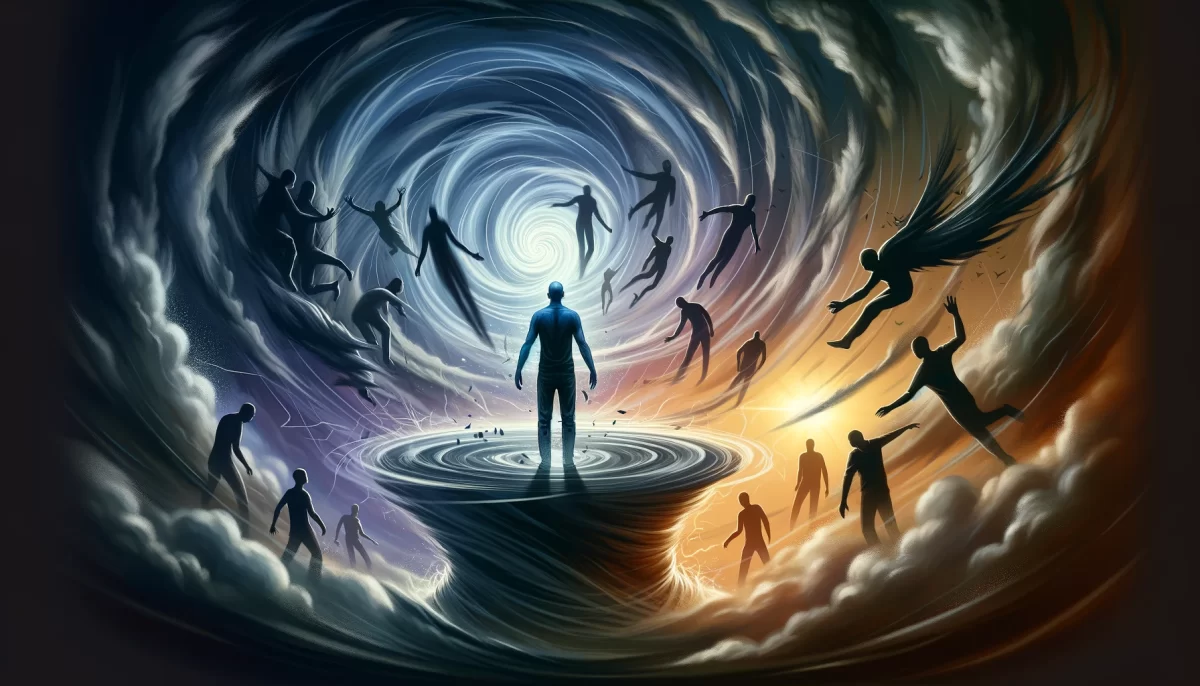




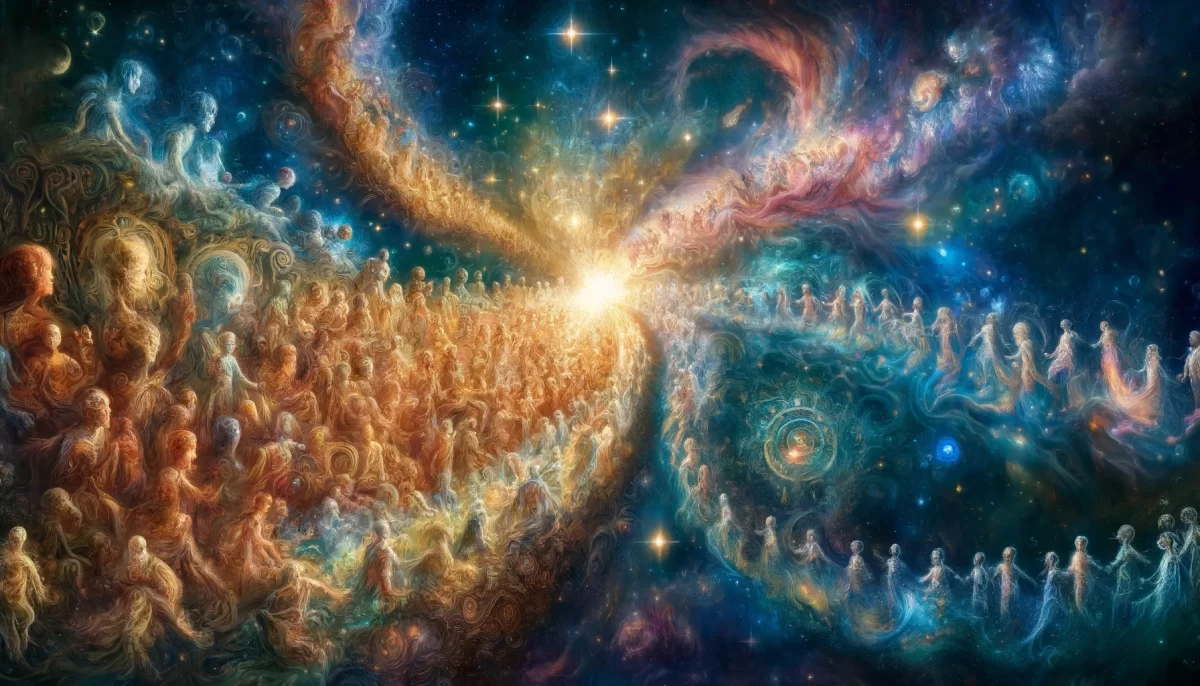
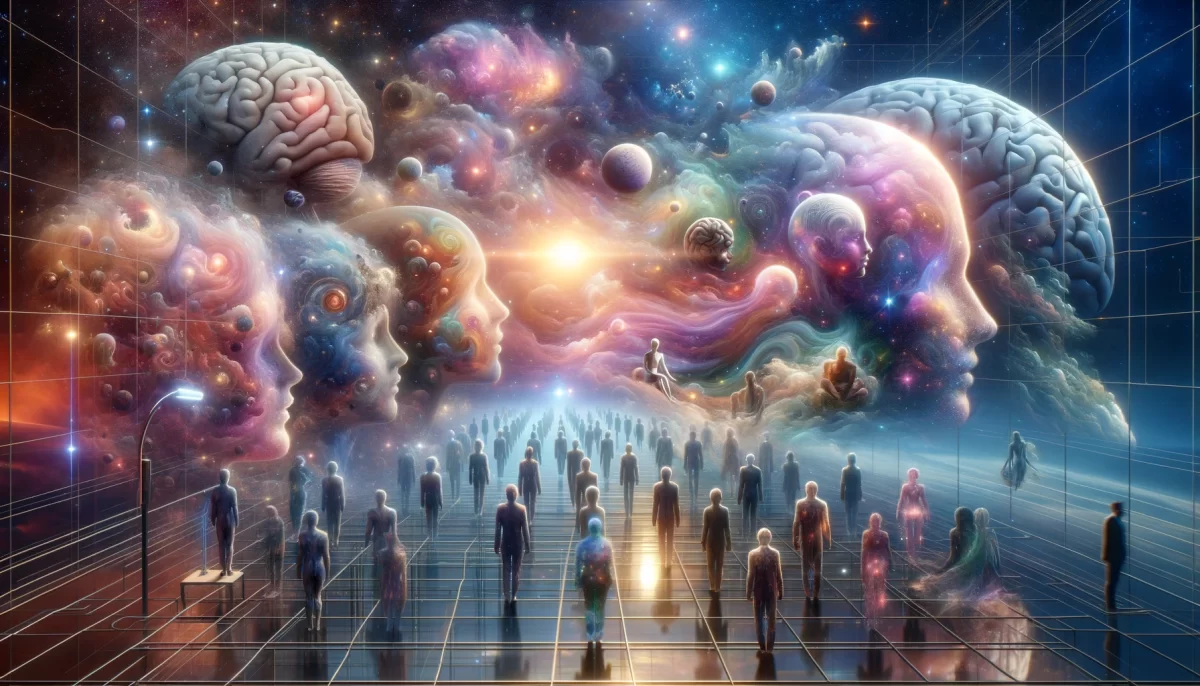

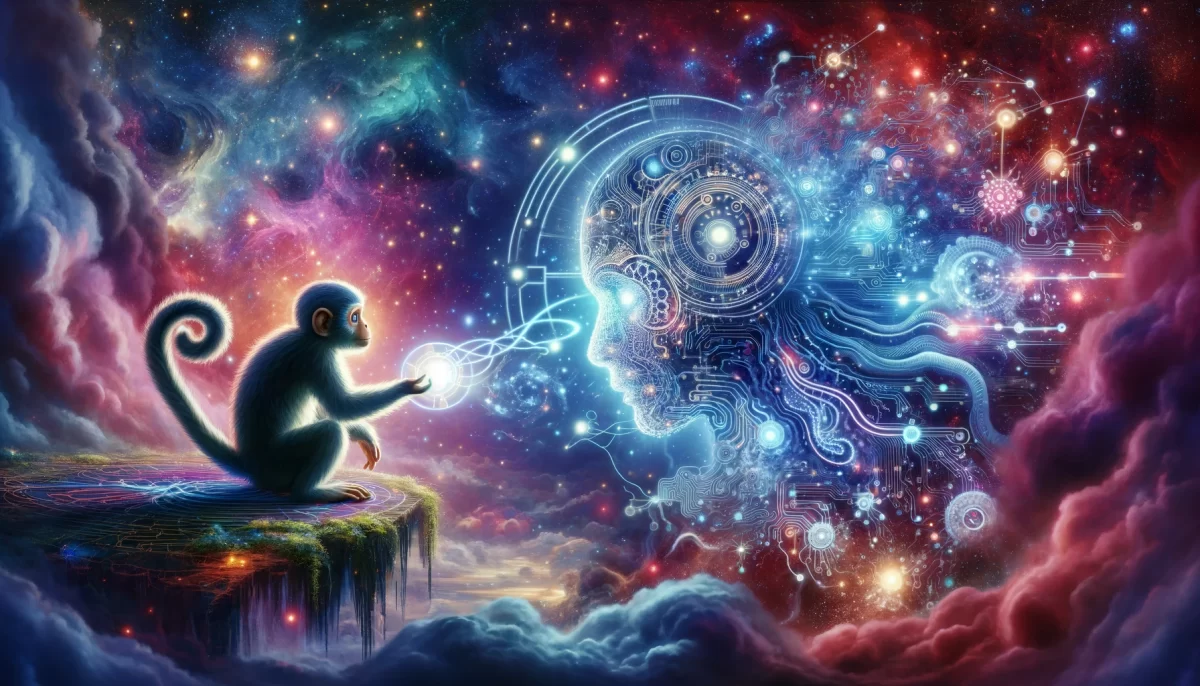






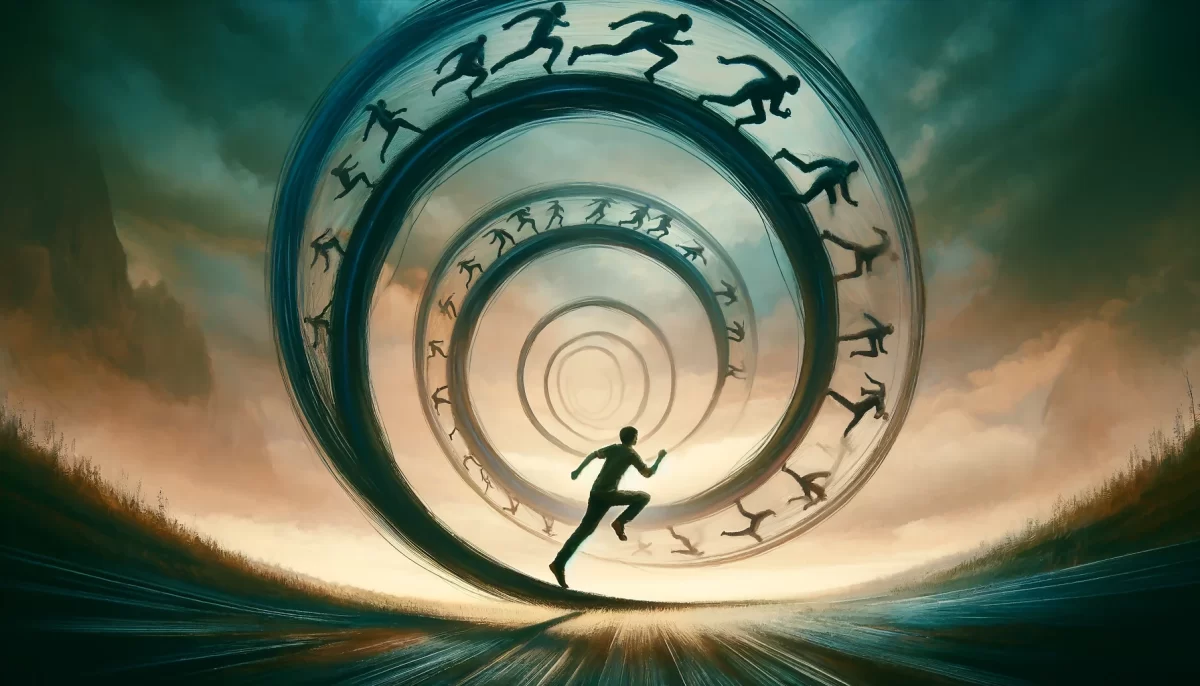



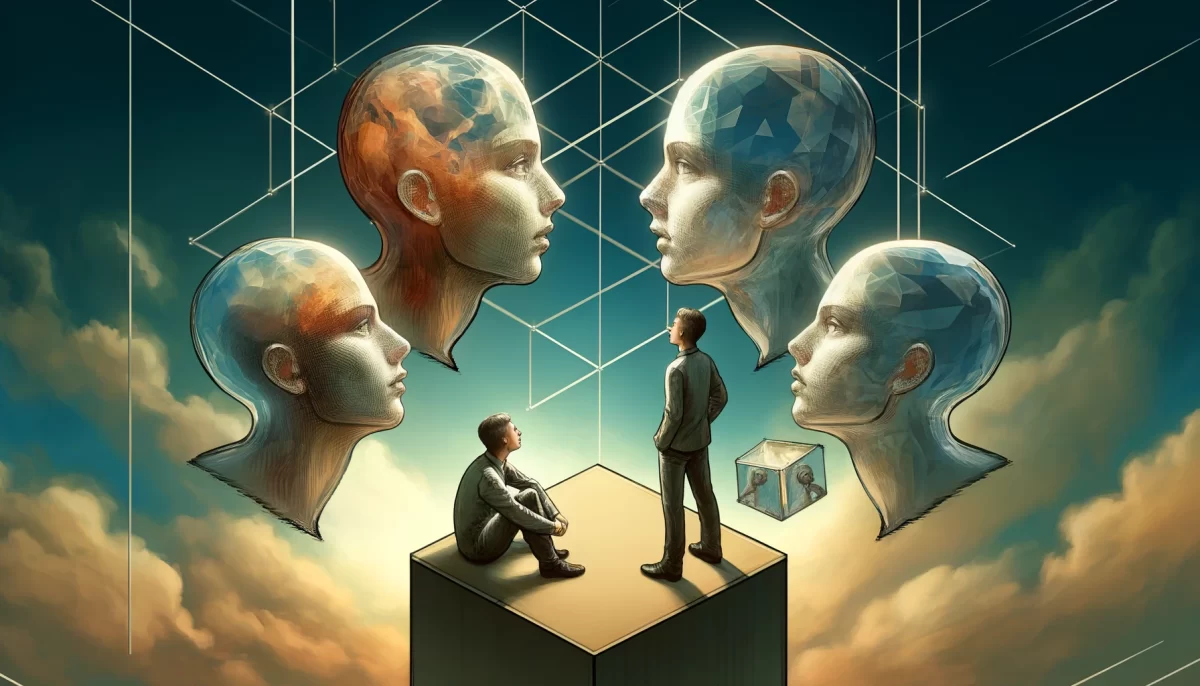









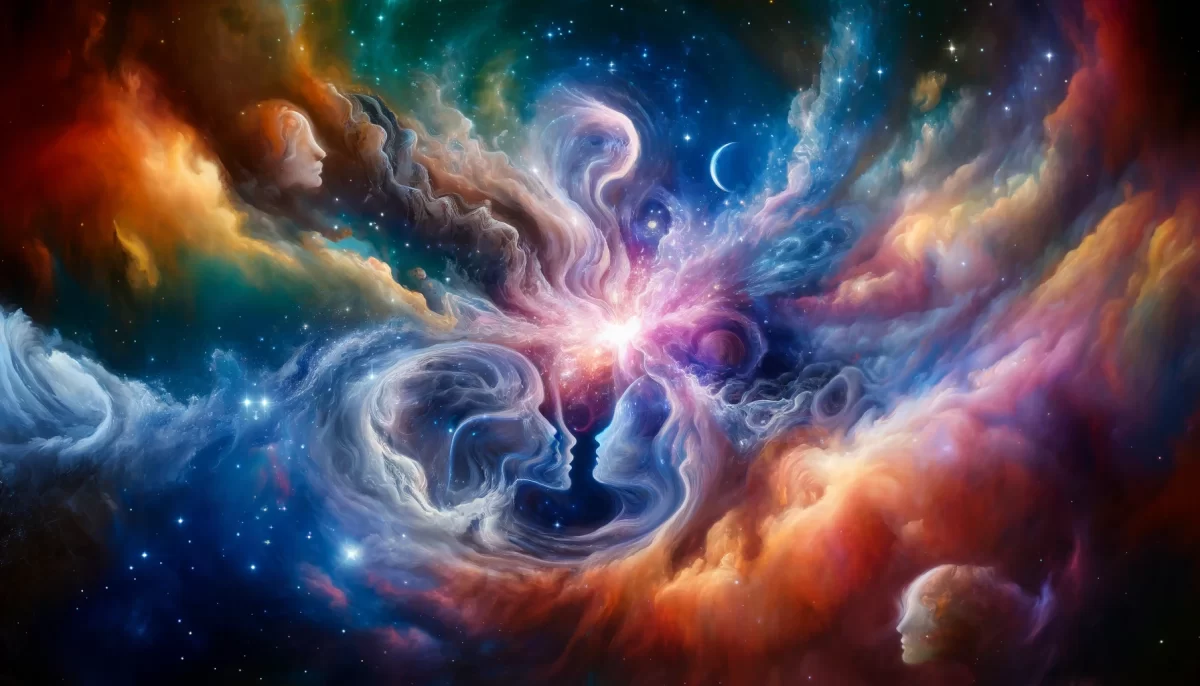

Leave a Reply